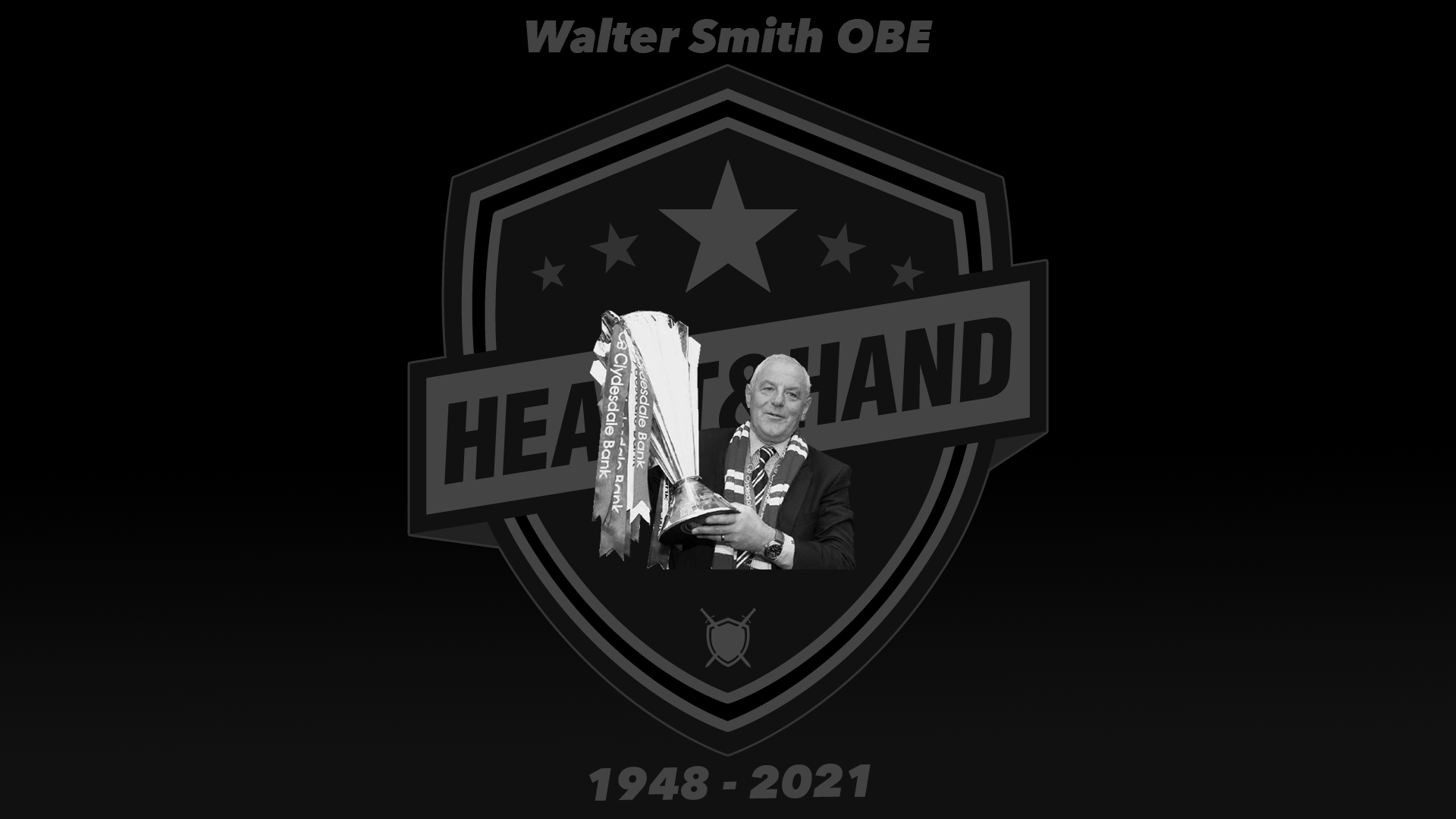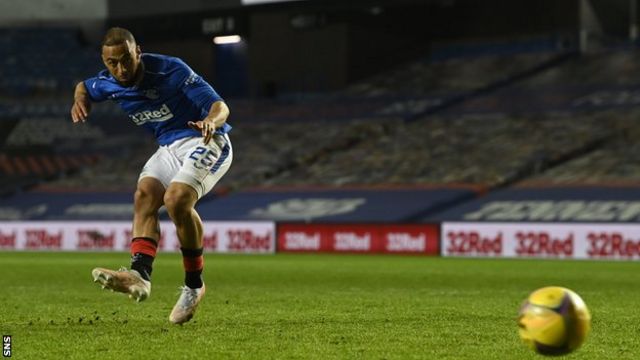It was April 1986 and Walter Smith was appalled as he stood in the Rangers dressing room on his first day at work. The first team squad would pick up training gear from a pile dumped in the middle of the floor and, even worse, it would just be hung up in old-fashioned drying rooms afterwards to be used again the next day, all filthy and stiff. Writing years later, Smith noted that this wouldn’t have been acceptable at Dundee United, from where he had just come, and it certainly jarred with his idealistic impression of what life at Rangers would – and should – be like. ‘I had had a vision of Ibrox all my life, in which everything at the stadium was as near-perfect as you can get at a football club. But back then, for whatever reasons, the infrastructure of the club was not right. That had to be overhauled dramatically.’ Standards were not, as men of Smith’s generation would say, ‘Rangers class’. A shibboleth for a job measured perfectly to the best possible grade. The mythology, created by Bill Struth and cultivated by Scot Symon, had been tarnished by decades of complacency and incompetence. An aura had vanished.
It was about to make a dramatic return as the club was revolutionised in a matter of months. Graeme Souness would be its driving force of course, but the actual practical implementation was due in no small part to both Smith and David Holmes. They were quieter men – certainly less abrasive than Souness – but no less ruthless and single-minded and all three set in motion a period of glory which would deliver twenty trophies in eleven years, including ten league titles. It would be an era unlike any other in the history of the club. And it was mine.
I was five years old when Walter Smith first arrived, a few weeks before Graeme Souness was finally released from his contract at Sampdoria. My footballing consciousness was awakened by the Mexico World Cup that summer and I would make my first trip to Ibrox in the September. Rangers defeated Aberdeen 2-0 – a poetic crossing of the new force and the old – and within a month, I saw a Rangers cup win at the first time of asking. I was seventeen when I watched Rangers in another cup final as Smith and my team of heroes looked on disconsolately whilst Hearts celebrated instead of us at Parkhead. It was then, when so nearly an adult, that I experienced something for the very first time: a season without seeing my team win a trophy.
And that is why today has been so emotional. Walter Smith, along with Souness, McCoist et al, were so often more responsible for my childhood happiness than most friends and family members could ever be. It seems ridiculous and overwrought to say that but it is unquestionably the truth. Following the fortunes of a football team will always keep us in that continual state of emotional flux right up into old age. However, it is during those formative years when the impact is most acute. Before mortgages and marriage, kids and careers. Your team winning on a Saturday was one of life’s top priorities, at times it felt like the number one, and when your team was Rangers, your life pre-adulthood during that era was basically milk and honey. When we consider the different generations of Rangers fans, my one was the most fortunate and that was mostly down to Walter Smith. His passing only intensifies the connection to our childhood, something that is naturally evocative in any case.
The sneering derision inherent in language such as ‘Imagine grieving for a stranger’ ignores the power of fame, a kind of photosynthesis where the worldwide media absorbs natural talent and produces a magic that is much larger than life. We feel as if we know these people so well and are often caught out by the realisation that they don’t know us. It is also ignorant of the fact that we have a need for more than just our kin and our neighbours. Sport – like music and art – produces moments that set off emotional reactions that are beautifully illogical. For any real football fan, there is no single high that sex, drugs or rock and roll can produce, that matches the rush of celebrating big goals and important victories. Walter Smith engineered plenty of those for me.
Sport, perhaps more so than the arts, lets us share those moments more acutely with others and I got to do that with the people who really do matter in life, which is the point after all. I spent the vast majority of that journey through childhood and adolescence watching Rangers whilst sat beside my Dad and for that, I shall be eternally grateful. Most weeks, home and away, we’d talk Rangers in the car there and back and go through the whole range of emotions in the stadium. It was life in microcosm. Highs and lows, justice and injustice, beauty and violence. When I watched the Club’s official tribute video today, I was instantly transported to where I was at each goal, hugging my old man tightly or, in later years, my pals. I’ll probably never see anything like 1992/93 again. It came at a time where I was approaching that awkward adolescence, where the typical West of Scotland father-and-son relationship is naturally strained. So often however, we would be brought together by sheer elation. We were at Broomfield the day we won the league, Parkhead the day we won the Treble and Bruges the night our European dream was kept alive until it was finally ended that night at Ibrox where I wept and he consoled me. Week after week we were electrified by the excitement of some of those performances and the genuine hope of what could be achieved at the end of the season. Walter Smith gave us that and I loved him for it.
It wasn’t always that way, of course. As the spellbound child turned into the spoilt teenager, there was plenty of criticism aimed at that dugout, especially with respect to Europe. Whilst researching old fanzines from the 90s recently, I expected calls for Smith’s sacking at various points but there were none. Criticism, yes and plenty of it. Calls for better support around him in the technical area, certainly. When the moment came to call time, most agreed with the decision but it was a fanbase that seemed unable to actively call for the end by themselves. He had brought them too many moments and, as it turns out, those moments matter. They are the same moments that come to mind so viscerally today.
My grandfather was fond of saying that you hardly ever recognise anyone at their funeral. One natural human response to death is to erase the bad days and we should always resist that urge. Walter Smith’s personality, his achievements and his life were so huge that they can easily absorb a fair and rounded assessment. The other natural response to death is to light up the good days and we should never resist that urge. We resisted it too often at the time. We took it for granted and we shouldn’t have.
There is a school of thought to which I – and Sir Alex Ferguson amongst many others – subscribes and that is that Walter Smith’s second spell was considerably more impressive than his first. Fewer trophies sure, but done with fewer stars and at a club with a greatly diminished status. In times of trouble we reached out to our ultimate father figure: strong, calm, assured. Everything would be alright again. F. Scott Fitzgerald once thought that there were no second acts in American life. Walter Smith had no fairytale ending to his first act as Rangers manager, being told to go and then watching on as his players ran out of life at the final hurdles. Given the opportunity again nearly a decade later, he ensured that he went out in his own way: by choice and holding aloft the biggest prize in Scottish sport.
Smith often said how fortunate he was to get another chance to manage Rangers. Not as fortunate as we were.
Martyn Ramsay.




